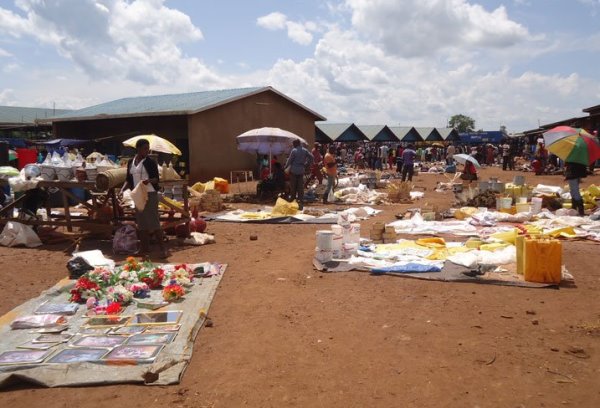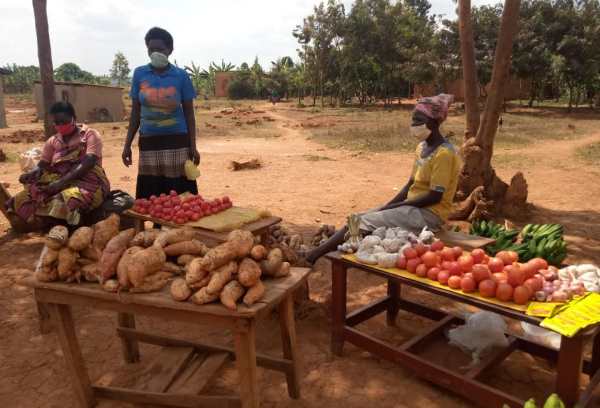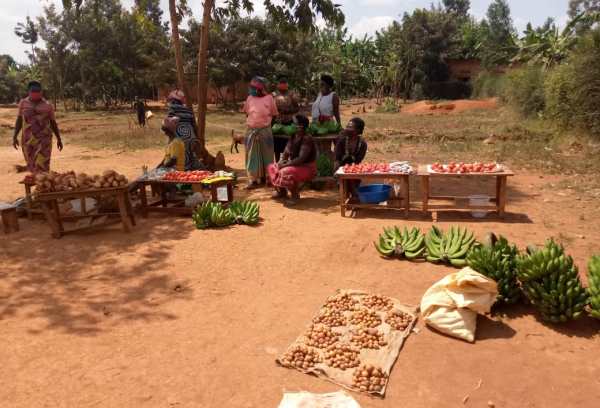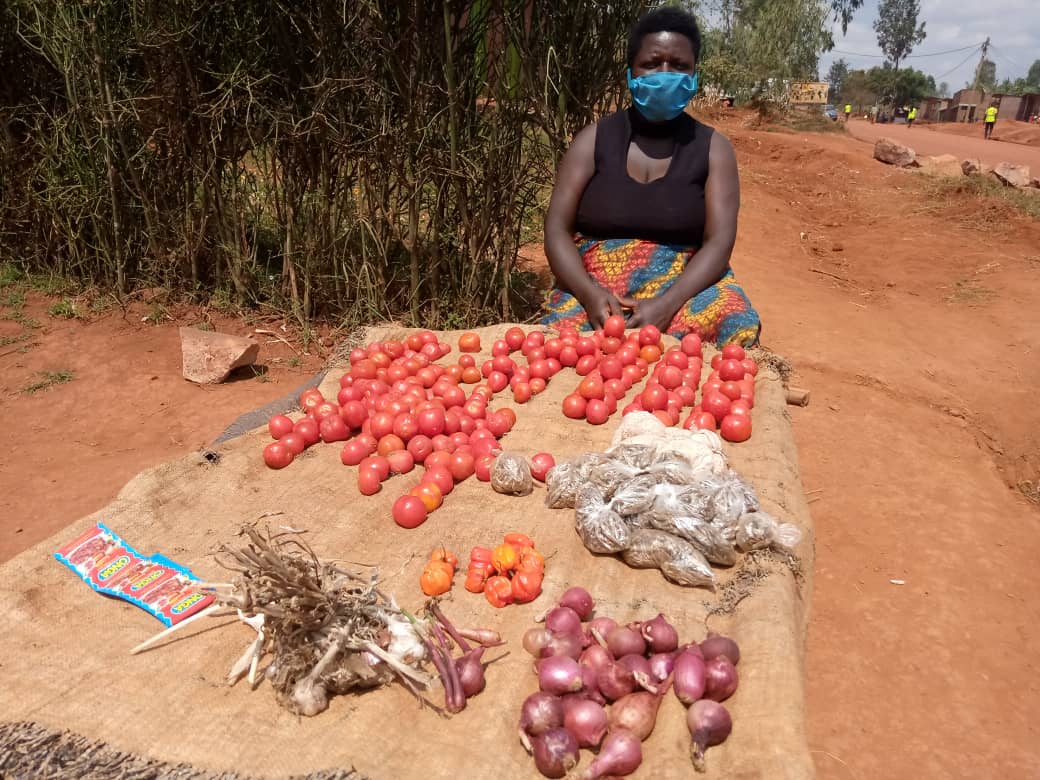
By John Mugisha;
The novel coronavirus (COVID-19) has adversely affected the global community and, like most countries, Rwanda has not been spared.
Rwanda reported the first case of Covid-19 on 14 March 2020, it was an Indian male who had come into the country. Thereafter the government decided to put multiple measures to slow and control the spread of the virus and address its health effects.
Such protocol measures included restriction on movements, public gathering, curfews, school closing and social distancing.
In the Eastern Province, Kayonza district, the measures created a widespread impact on business activities both directly and indirectly in terms of job losses, changes in prices of essential commodities, consumer spending as well as livelihoods.

For instance, the curfew caused a negative impact on business patronage, reduced business operations, loss of income and disrupted supply chains. The policies to limit the spread of the virus created household-level unemployment, job losses due to the prohibited movement between districts and provinces.
Moving forward, businesses in the district are trying to adapt to new playing fields, the biggest questions remain on ‘where to from here’?
From a business point of view, Samson Karegeya who switched from bar and restaurant to a retail shop trade at Kayonza bus station says that the impact of Covid-19 pandemic has been devastating to the extent that he had to transform and adapt to new circumstances.
“I had to shut down my restaurant and bar then switched to retail shop business because income dropped by 80 percent. Bars were closed for months; they could compromise public health measures, so we stayed at home unemployed.” He stated.
He adds, “Since the rate of infections has reduced thanks to the government vaccination rollout campaign, business is recovering in Kayonza but slow, consumers are spending money but they are very careful on what they’re buying.”
“We’re observing a change in spending; customers are spending less on non-essential goods but more on basic household needs like food, clothing as well as travel. Prices have not risen except for some goods like soap, cooking oil and sugar.” He underlined.
A report by the World Bank Rwanda Economic update, in a post-COVID-19 World, says that Rwanda’s gross domestic product (GDP) is estimated to have dropped by 0.2 percent in 2020, compared to a projected expansion of 8 percent before the COVID-19 outbreak.
In the transport sector, public health measures remain at the center of the response. Kayonza, a town two hours away from capital Kigali, buses still don’t have to run at full percent capacity.
Duncan Mugire, a driver for Virunga transport company standing in noisy Kayonza bus station, admits that after initial lockdowns, as the economy gradually reopened, people began to move around more freely again but were not happy because the travel fare was raised.
“The government instituted nationwide regulations for a number of essential services, which meant the transport industry had to change. We are pleased that the government intervention against COVID-19 is bearing fruit and that people are safer, business is returning to normal though slow after the essaying of the restrictions,” he noted.
Kayonza is one of the districts that have since registered the smallest number of deaths, 13 in total. The district administration attributes the low rate to sustaining public health measures.
For some of the other small and medium businesses that we talked to, the demand and supply of inputs wasn’t affected, not directly. Some claim to be thriving while for others the situation continues to change every other day.
Beatrice Mukamurenzi, a restaurant owner, says that her business was hit the hardest. Fear of coronavirus drove diners away. She says that she couldn’t pay rent. She was staring at huge losses as some of the soft drinks expired.
She noted that her sales dropped by 60 percent, and had to close and send home five employees because of the drastic move to extend curfew hours and the limit for restaurants to takeaway service only.
Today, she expresses confidence that the ongoing vaccination programme will boost the confidence of customers as the country targets full recovery by 2023.
“We’re really waiting for a miracle, business is returning slowly on the cusp of a recovery but reaching the previous milestone “Still won’t be easy, what will happen next, I do not know.” she adds.
The 39 year old mum of two is worried; inflation is likely rather than the pandemic to kill her business because the sharp rises in prices on the market.
“The cost of white onions, an ingredient used in many dishes, cost around Frw 1,500 ($1.50) a kilogram each compared with Frw 600-800 when her eatery opened. I have resisted increasing the price of dishes to retain my customers because I’m worried they will go to cheaper rates. Our goal is to provide the best customer satisfaction. We used to cook ten kilograms of rice a day but that has fallen to only 3kg or 4kg a day.” He underlined.
According to the National Institute of Statistics (NISR), Rwanda’s Consumer Price Index (CPI), the main gauge of inflation decreased by 0.9 percent in September 2021 down from -0.6 percent in August 2021.
The prices of the “fresh products” decreased by 7.5 percent on annual change and increased by 2.5 percent on monthly basis.
Following weeks of declining numbers of new infections, earlier this month, restaurants and bars were allowed to operate at 75% occupancy limit, according to the cabinet, bars shall continue to resume gradually but customers must fully be vaccinated.

Other small and medium enterprises operating in the Kayonza main market have underlined that they’re still facing significant challenges related to making losses, even though the impacts of the pandemic on businesses have generally lessened.
To assist such business, as of June 8, 2020, the government launched an Economic Recovery Fund, (ERF) worth Rwf.100 billion to be distributed towards; hotels sectors that lost over 90% of revenues from cancellation of events and bookings due to global lockdown and travel restrictions.
“The ERF in addition to other recovery measures is supposed to overcome the significant hardship brought on by COVID-19 on businesses and individuals and allow them to be in a position to play a meaningful role in our economic recovery,” said Dr. Uzziel Ndagijimana, the Minister of Finance and Economic Planning.
The Fund was deployed by the Central Bank to commercial banks, microfinance institutions and SACCOs who are lending to businesses.
Aaron Kamurasi who buys cattle, goats and pigs in Kayonza and sells in Kigali says that the pandemic ruined business when markets closed; because of restrictions on movements it was hard to go deep in villages to buy cattle.
Kamurasi, 49, lives in a remote Mwiri sector in a small village in Kayonza district where the road network and reconnecting with buyers is a challenge.
““Before… the pandemic, I used to buy about 100 goats in a week, when the virus struck supply reduced, getting even 60 goats is now hard. The cost of doing business has increased. You have to hire a lorry, drive almost 100km deep in several villages to buy the goats and pay for the fuel because of travel restrictions and curfews” he said.
When the government eased the lockdown, allowing businesses to operate, Kamurasi is slowly reconnecting with his suppliers, and now that there is rain he says that livestock are healthy and in good condition, he is confident business will pick up in the long run.
For eligible businesses that are cash trapped, and out of business accessing the recovery fund implies demonstrating the negative impact of COVID-19 on their operations, that they were commercially viable prior to the pandemic, and that they can return to viability, preserve jobs and contribute to the recovery of the economy.

Shema Uwizeye, depended on selling fresh vegetable and fruits before the pandemic, he also used to transport his stock to clients, but when the coronavirus pandemic closed markets and ushered in movement restrictions and curfews, transporting the stock from the supplier to customers became expensive as there only few trucks available so he started making losses that ate away at his income.
Now sitting at home to focus on gardening with his wife and four children, he says. “I can’t access the fund because of an outstanding loan of Rwf. 90,500 that I’m struggling to pay.” he said earlier this week.
Businesses which are struggling to get help from financial service providers have appealed to the government that the process and conditions of accessing the fund are bureaucratic and cumbersome.
“Government should review their financial and technical support to SMEs to ensure the continuous availability and affordability,” Uwizeye points out adding that small businesses can power a strong recovery from Covid-19 because they are innovative in nature but they need more support.
In July this year, the Rwandan government announced efforts that are already being made to bolster aggregate demand through increased government spending and tax cuts for businesses. The public budget 2021/2022 fiscal year was increased from 3.807 trillion francs ($3.80 billion).
